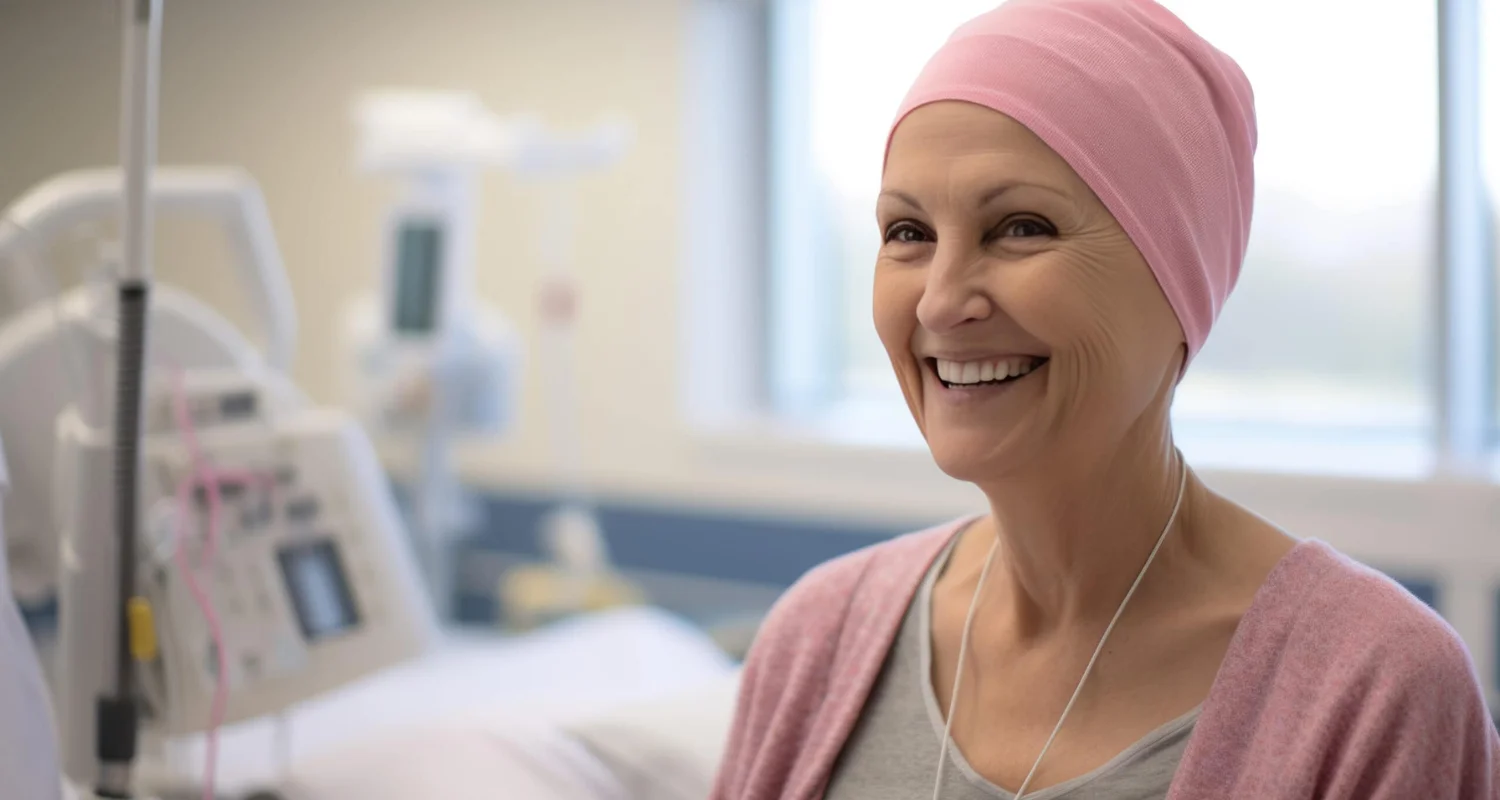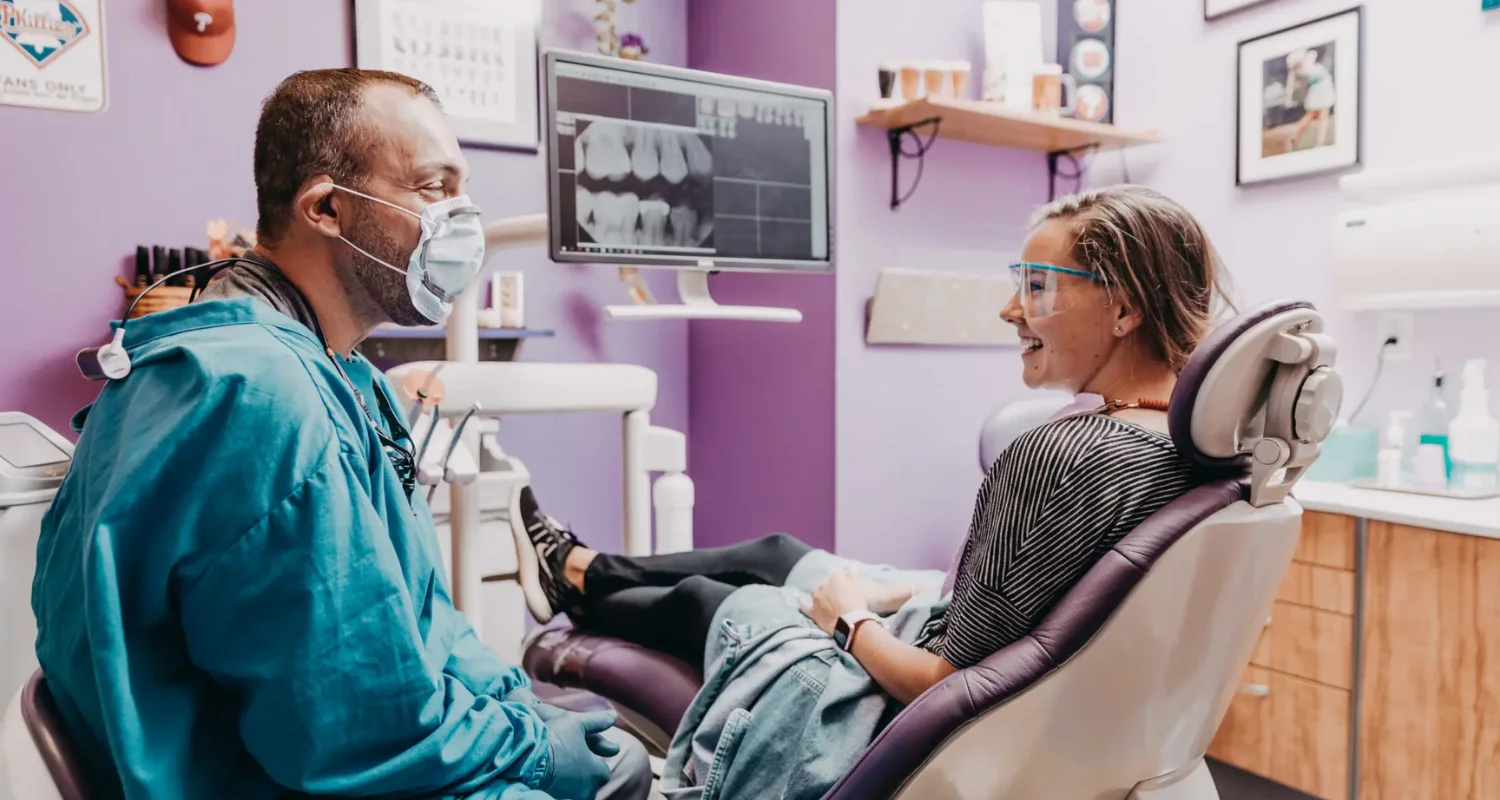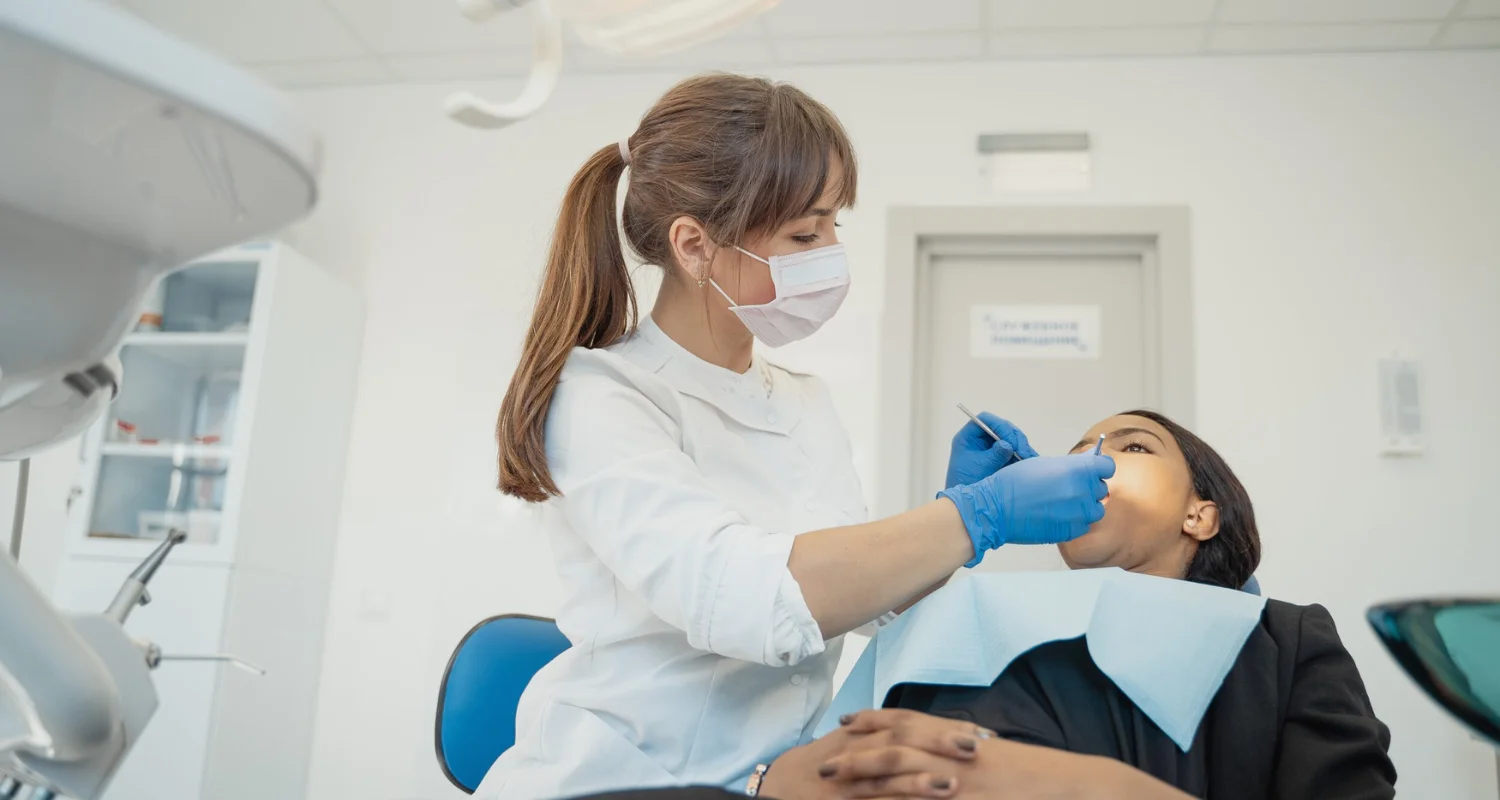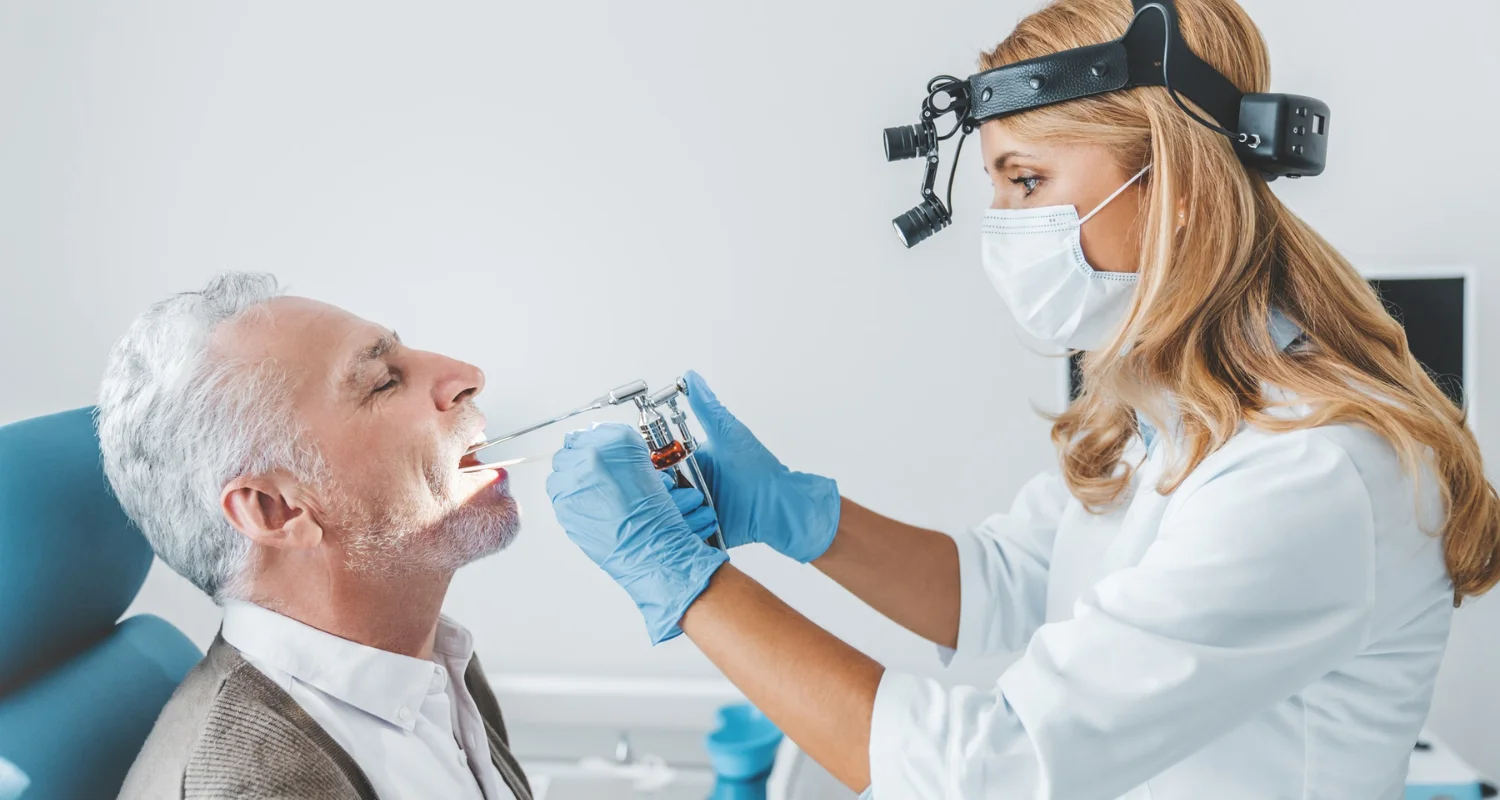Last Updated on: 15th December 2025, 11:03 am
Dental treatment in cancer patients is essential because chemotherapy and radiation can weaken the immune system and damage oral tissues, increasing the risk of infections, dry mouth, gum disease, and tooth decay. Regular dental care helps prevent complications, manage side effects, and improve overall quality of life during and after cancer treatment.
Do you know why dental treatment in cancer patients it’s so important?
Cancer treatments, such as chemotherapy, radiation therapy, and certain medications, can have a significant impact on oral health. These treatments often weaken the immune system, which increases the risk of infections in the mouth. It can lead to side effects such as dry mouth (xerostomia), sores, gum inflammation, and loss of taste. In addition, radiation therapy to the head and neck area can affect oral tissues, teeth, and salivary glands, worsening problems such as tooth decay or periodontal disease.
For this reason, oral care during cancer treatment is essential to prevent further complications. It is critical that patients maintain a proper oral hygiene routine, including regular visits to the dentist before, during, and after treatment, to minimize adverse effects and protect oral health.
How Does Dental Treatment Impact Cancer Patients?
How chemotherapy affects oral health
The effects of chemotherapy on the oral cavity will depend on the drugs and doses used. Chemotherapy directly attacks the cancer cells in our body; unfortunately, it also attacks the good cells resulting in a weak immune system, decreasing the ability to attack infections. The mouth is one of the places where more bacteria are found; for this reason, more side effects can be generated such as:
- Xerostomia.
- Infections.
- Gum diseases.
- Dental abscesses.
- Higher prevalence in mucositis.
Radiotherapy and risks to oral health
Head and neck radiation can cause acute and chronic effects, as well as cause permanent tissue damage. Complications in the oral cavity include:
- Infections.
- Xerostomia.
- Changes in taste.
- Mucositis.
- Trismus.
- Osteonecrosis in the maxillary bones.
- Damage to the salivary glands.
- Growth of benign or malignant tumors.
How Is Dental Treatment Managed Before and During Cancer Therapy?
It is important to perform a thorough check-up before starting cancer treatment, whether with radiotherapy or chemotherapy. Below we will explain how to act depending on the type of treatment.
Radiotherapy
- Perform a dental check-up before treatment and prophylaxis.
- Extract teeth that do not have a good prognosis or have an unfavorable prognosis.
- Prevent tooth demineralization and cavities due to radiation by applying fluoride before treatment and during treatment every 6 months.
- Make sure you are following an adequate oral hygiene routine that includes brushing after each meal, flossing, toothpaste with 1450 ppm of fluoride, and if you use mouthwash, use it without alcohol.
- If you are going to have any surgical treatment in your mouth, it should be done at least 14 days before starting radiotherapy treatment.
- Schedule an appointment with your dentist at least every 3 months.
- Avoid the use of removable appliances in the mouth that may cause injury to the oral mucosa.
Chemotherapy
- Schedule a dental check-up appointment before starting chemotherapy treatment.
- Consult your oncologist before any dental procedure, including prophylaxis. Since a blood test should be performed where platelets are above 75,000/mm3, coagulation factors are normal and neutrophil count is above 1,000/mm3, if they are lower, prophylactic antibiotics should be taken.
- Make sure you have constant oral hygiene measures.
- Chemotherapy weakens the immune system, so it is essential to visit the dentist at least every 3 months to rule out the presence of mucositis, infections or any side effects associated with chemotherapy treatment.
In both treatments, it is important that during any surgical intervention in the oral cavity, antiresorptive medication is not taken, since there is a greater probability of presenting osteonecrosis or fracture of the jaws.
What Are 3 Effective Tips for Dental Treatment in Cancer Patients?
How to care for your teeth during cancer treatment
During cancer treatment, it is essential to brush your teeth twice a day with a soft-bristled brush and fluoride toothpaste. This will help prevent tooth decay and plaque buildup, especially in patients who experience dry mouth. Use of harsh products should be avoided and a mild, alcohol-free mouthwash should be opted for to prevent additional irritation in the mouth, as the tissues may be more sensitive due to chemotherapy or radiation therapy.
How to care for your gums and tongue
Flossing daily is crucial to remove debris between the teeth and prevent gum disease. In addition, gentle tongue cleaning is essential to reduce bacterial buildup, but rough tools that can damage oral tissues should always be avoided. To relieve gum irritation and prevent infection, it is advisable to rinse with a saltwater solution several times a day.
How to manage dry mouth and mouth sores
Dry mouth is a common side effect during cancer treatments. To combat it, you should drink water regularly and use saliva substitutes or suck on sugar-free candy to stimulate saliva production. Also, to reduce irritation from mouth sores, it is helpful to choose soft, non-acidic foods that are easy to chew and do not worsen ulcers.
Cancer treatments such as chemotherapy and radiotherapy can significantly impact oral health, causing issues like dry mouth, infections, and gum disease. Taking proactive steps, such as maintaining a thorough oral hygiene routine and scheduling regular dental check-ups, is essential for managing these side effects. By prioritizing dental treatment in cancer patients, it can help prevent further complications and protect their overall oral health during this challenging time.
Frequently Asked Questions
Can cancer patients undergo dental treatment?
Yes, cancer patients can have dental treatment, but it is important to coordinate it with their oncology team. Before beginning treatments like chemotherapy or radiation, patients should have a thorough dental check-up to address any potential oral issues, as these treatments can weaken the immune system, increasing the risk of infections. Dental treatments are typically done either before starting cancer therapy or between treatment cycles, depending on the patient’s health status.
Should you get your teeth cleaned if you have cancer?
Yes, regular dental cleanings are recommended for cancer patients to prevent complications like infections, dry mouth, and gum disease, which are common side effects of chemotherapy and radiation therapy. It’s essential to ensure that the patient’s platelet and neutrophil counts are stable before any dental procedure, so consulting with both the dentist and oncologist is important.
Why do cancer patients have their teeth removed?
Teeth may be removed in cancer patients who are undergoing radiation therapy to the head or neck area, particularly if they are at risk for osteoradionecrosis, a condition where the bone tissue in the jaw dies due to radiation exposure. Removing teeth with a poor prognosis before radiation helps reduce the risk of infections and other complications during treatment.
How can cancer patients manage oral health during treatment?
Cancer patients can manage their oral health by maintaining a strict oral hygiene routine, which includes brushing with a soft-bristled toothbrush, using fluoride toothpaste, and flossing daily. Staying hydrated, using alcohol-free mouthwashes, and sucking on sugar-free lozenges can also help alleviate dry mouth. Regular dental visits are crucial to prevent and address any oral issues promptly during cancer treatment.
Voice and Search (Q&A)
What dental care is recommended during chemotherapy?
Brush twice daily with a soft brush, use fluoride toothpaste, floss gently, and visit your dentist every 3 months.
How does radiation therapy affect oral health?
It can cause dry mouth, sores, infections, and damage to gums and salivary glands, increasing dental risks.
What foods help relieve dry mouth in cancer patients?
Drink water often and eat saliva-stimulating foods like cheese, pineapple, or sugar-free candy.
Share
References
1. Cancer Therapies and Dental Considerations. (s. f.). American Dental Association. https://www.ada.org/resources/ada-library/oral-health-topics/cancer-therapies-and-dental-considerations
2. Goh, E. Z., Beech, N., Johnson, N. R., & Batstone, M. (2023). The dental management of patients irradiated for head and neck cancer. BDJ, 234(11), 800-804. https://doi.org/10.1038/s41415-023-5864-z
3. Oral Complications of Cancer Therapies. (2024, 15 octubre). Cancer.gov. https://www.cancer.gov/about-cancer/treatment/side-effects/mouth-throat/oral-complications-pdq#_7
4. Tooth extractions in patients with cancer receiving high-dose antiresorptive medication: A randomized clinical feasibility trial of drug holiday versus drug continuation. (s. f.). Science Direct. Recuperado 6 de febrero de 2022, de https://www.sciencedirect.com/science/article/pii/S2212440321004685
-
Nayibe Cubillos M. [Author]
Pharmaceutical Chemestry |Pharmaceutical Process Management | Pharmaceutical Care | Pharmaceutical Services Audit | Pharmaceutical Services Process Consulting | Content Project Manager | SEO Knowledge | Content Writer | Leadership | Scrum Master
View all posts
A healthcare writer with a solid background in pharmaceutical chemistry and a thorough understanding of Colombian regulatory processes and comprehensive sector management, she has significant experience coordinating and leading multidisciplina...


















